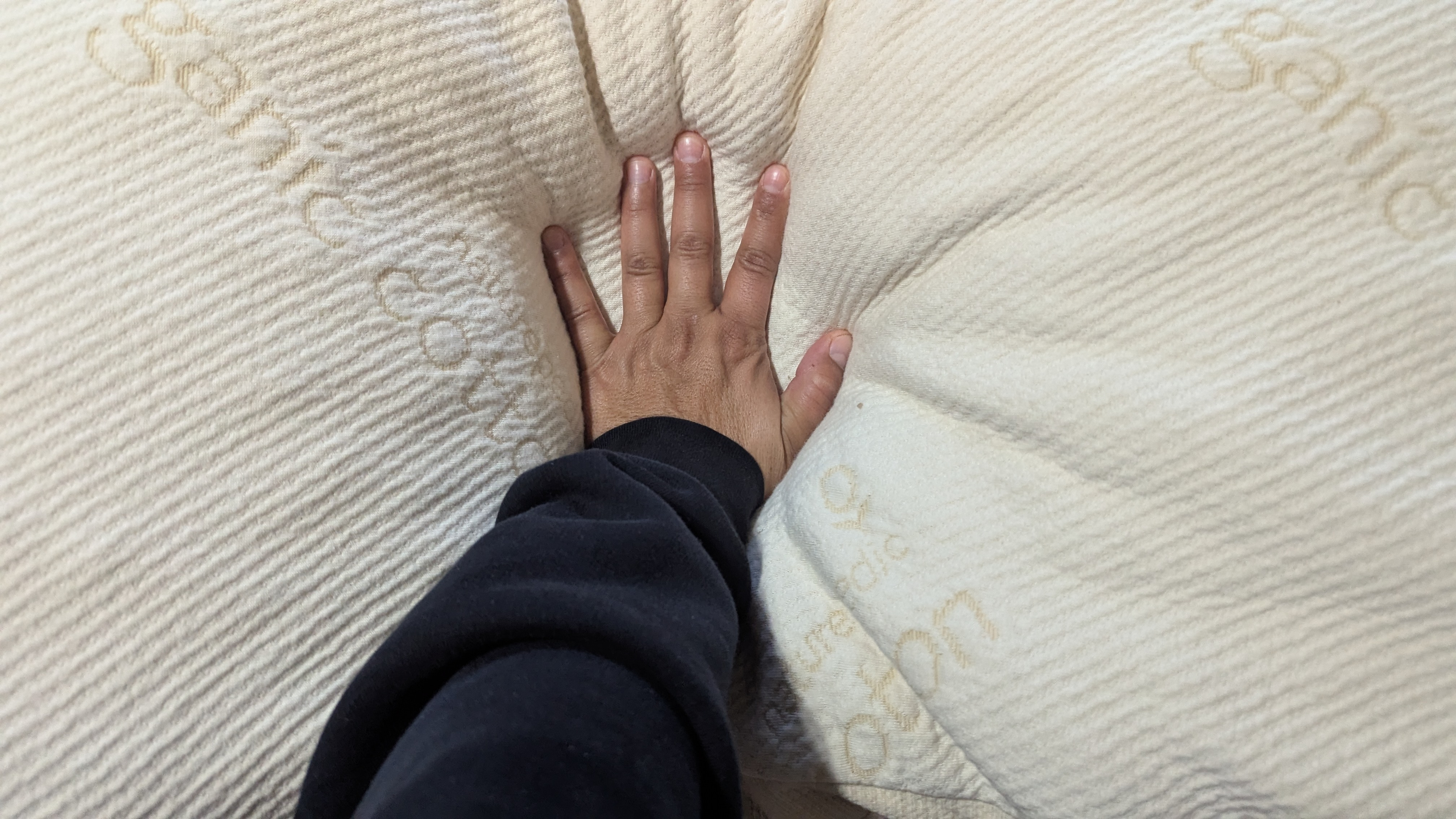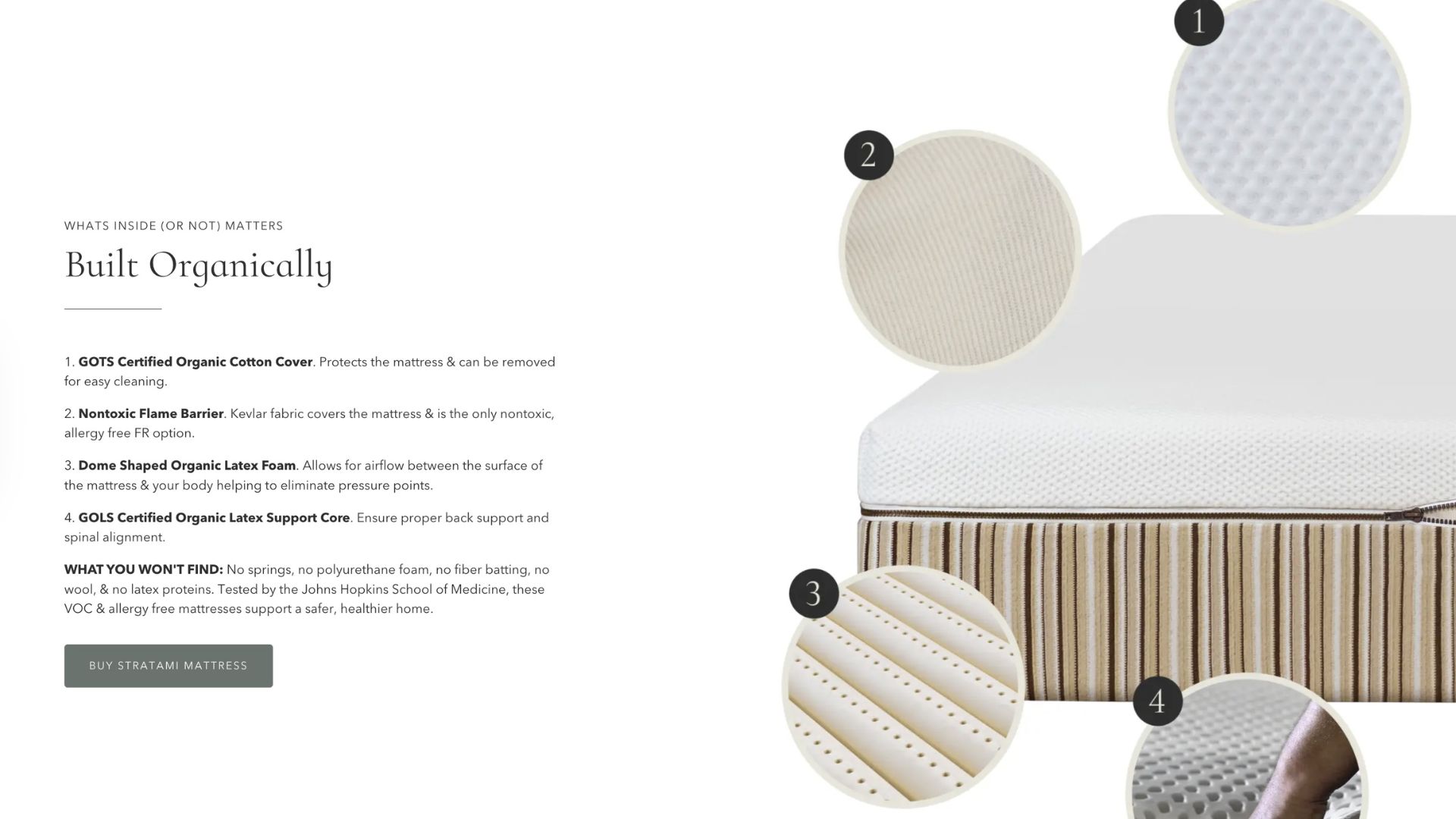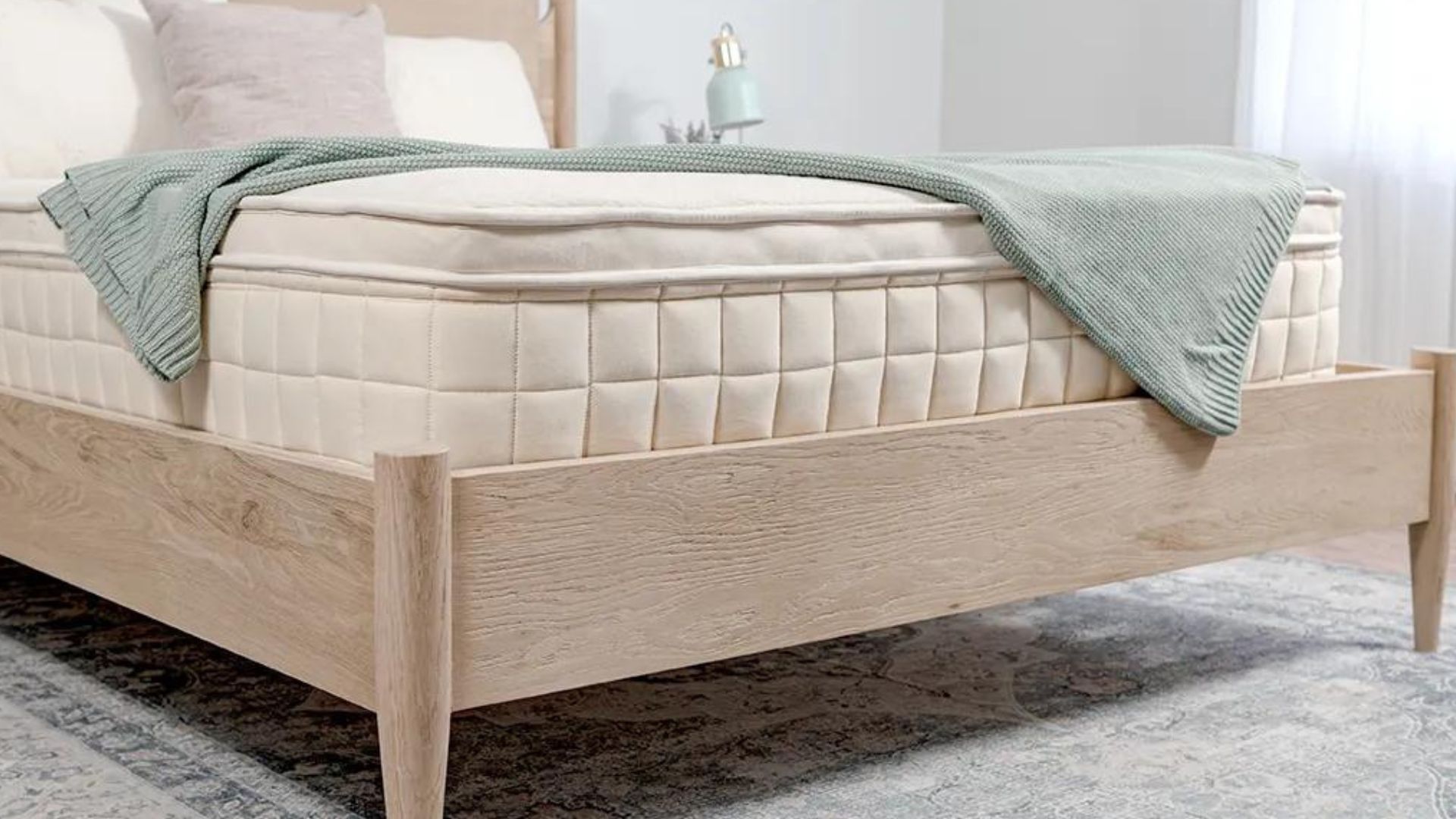5 things to look for when buying an organic mattress
From certified organic materials to supportive structures, these are the 5 things to look for in an organic mattress

As more shoppers are becoming increasingly aware of their impact on the planet, organic mattresses are gaining popularity. With sustainable production, natural high-quality materials and ethical processes, organic beds are a fantastic non-toxic, eco-alternative to traditional beds. But how do you ensure your mattress is the right one for you? And how can you tell if it’s really organic?
Choosing the best mattress for you means considering your sleep needs and personal preferences. This means looking for the right firmness feel, the right material and the right level of support. When it comes to buying the best organic mattress, there are further things to look out for, like the materials, certifications, structure and more.
With the Presidents’ Day mattress sales coming up, it’s a great time of year to invest in your perfect bed, and an organic mattress is a purchase that can last you up to 25 years, so it’s important you get it right. Here’s what to look for.
- Read more: I'm a sleep editor and I'm ditching my memory foam bed for an organic mattress — here's why
5 things to look for when buying an organic mattress
1. Organic materials
Organic mattresses don’t use man-made chemical based materials, which means even the best memory foam mattresses can't be certified as organic. Instead, they use natural textiles. The most common materials to look out for include:
GOTS-certified cotton: Cotton is a great material that’s often used in mattress covers. It has a soft feel and it’s naturally breathable, making temperature regulation for sleepers easy. Organic cotton is derived from a plant, which means it’s sustainable and doesn’t include have any toxic chemicals.
GOTS-certified wool: Wool is often used in organic mattresses for many different reasons. It can be used as a mattress cover, as a pressure relief layer and as a moisture wicking layer. Again, because of the breathability and moisture wicking properties, it’s a fantastic addition to cooling mattresses.
GOLS-certified latex: Latex is used in organic mattresses as an alternative to chemical-based memory foam. Natural latex is derived from the sap of trees, making it sustainable and non-toxic. When it’s processed for use in mattresses it creates a bouncy, springy, supportive surface that contours to your body.
Natural fiberglass alternatives: Fiberglass is used in many cheaper mattresses as a flame retardant, but it’s a toxic substance and if it escapes from the mattress it can be very dangerous to inhale. Organic mattresses use natural alternatives to fiberglass like thistle pulp.

2. Mattress certifications
Greenwashing is an issue in almost every industry, and the mattress industry is no exception. To ensure your mattress is truly organic, there are certain mattress certifications issued by independent bodies that prove your mattress is what it says it is. These include:
Sign up to get the BEST of Tom's Guide direct to your inbox.
Get instant access to breaking news, the hottest reviews, great deals and helpful tips.
GOTS: The Global Organic Textiles Standard means that a material has been tested and confirmed it doesn’t contain toxic chemicals or man-made products, like pesticides or fertilizers, and they will have been sustainably harvested and sourced.
GOLS: The Global Organic Latex Standard ensures that latex is natural and organic, as well as being sustainably and ethically sourced. Synthetic latex is a popular alternative to use because it mimics the benefits of natural latex, but it’s made with petroleum, so if a mattress uses it, it isn’t organic.
USDA Organic: While many mattresses use organic materials, not all are certified organic. This is because they also use other man-made, chemical-based materials. To ensure the final product of a mattress is fully organic, look out for the USDA Organic certification.
3. Supportive structure
While ensuring your mattress is organic is important, what’s more important is ensuring it will support your body as you sleep. Most organic mattresses are premium, high-quality beds so they’re likely to have a well thought out design that offers enough support.
Many organic beds have hybrid structures. The best hybrid mattresses combine high quality foams or latex with individually wrapped coils. A great example of this is the Avocado Green Organic mattress, which has coils arranged in 7 ergonomic zones to ensure your body is fully supported in any sleeping position. Read more in our Avocado Green mattress review.

There are also top organic mattresses that don’t use any springs or coils, like the Essentia Stratami that has three simple layers of latex. These can also be supportive, as long as the latex is high-quality and thick enough. Ideally, your mattress should be at least 10” thick to offer meaningful support and proper pressure relief.
If you’re a heavier weight sleeper, you’ll need to ensure your mattress is supportive enough to stop you from sinking too far into it. Check out our best mattresses for heavy people guide to find the right pick for you. This doesn’t rule out organic mattresses, as the Avocado Green has a weight capacity of 700lbs, but it’s an important consideration when you’re shopping.
4. The right feel for your sleeping position
Sustainability and non-toxic, natural sleep is important, but if you don’t feel comfortable, the mattress isn’t worth the investment. One key consideration when shopping for an organic mattress should be your sleeping position and personal preferences, as this will dictate the firmness and feel of your mattress.
Generally, back sleepers will want to opt for a medium-firm to firm feel to ensure their spines are aligned and they don’t sink too far into the mattress. Similarly, stomach sleepers will need a firmer surface to stop their hips from sinking into the mattress, throwing their spines out of alignment. Check our best mattress for stomach sleepers guide to find an organic pick for you.
However, side sleepers will need extra pressure relief around the hips, shoulders and knees to avoid pressure build up leading to aches and pains. This means they’ll usually find softer mattresses more comfortable.
Many latex mattresses have a medium-firm to firm feel, but the Naturepedic Concerto Organic Pillow Top mattress, featured in our best mattress for side sleepers guide, has a plush sink-in feel, rated at a 5/10 for firmness, thanks to its use of cotton and wool batting. Read our Naturepedic Concerto mattress review to find out more.

5. Perks that come with the purchase
Organic mattresses usually have a high price tag to match the quality of the materials used and the sustainable production processes, although monthly mattress sales do discount even the most premium organic mattresses. Because of this, you want to ensure you get the right perks with your purchase.
A sleep trial will ensure you find the mattress comfortable and supportive. It usually takes around 30 days for our bodies to become accustomed to a new sleep surface, and the standard sleep trial offered is at least 100 days. This is plenty of time to ensure the mattress is the right choice for you.
An organic mattress can last up to an incredible 25 years because of the durable nature of latex. Because of this, you’ll want to ensure you’re covered for any faults or damages that weren’t your fault. Some organic mattresses offer lifetime warranties, but as long as you’re covered for at least 10 years, that’s often enough.

Lauren is an experienced writer and editor in the health and lifestyle industry and has led many campaigns and projects that deliver news, advice, and research on all things sleep. As the Sleep Features Editor for Tom’s Guide, Lauren writes, commissions and edits sleep and mattress content, from in-depth how-tos in sleep and mattress health to interviews with doctors and neuroscientists on the latest news in sleep. Lauren regularly tests new sleep tech and accessories to evaluate their effectiveness for getting good quality sleep and easing specific sleep struggles like nighttime anxiety. Alongside this, Lauren reports on the best mattress brands out there, like Helix, Saatva, and DreamCloud, helping readers find the right mattress for them and the best deals on them.
